(There is talk of bodily functions — my bodily functions — in this post. If you do not want to read about that, kindly skip over this post. — JS)
I’ve often been in the situation where after a long hot day, I feel particularly dehydrated. I’ll stand on a bathroom weight scale morbidly curious, and find that my body weight seems a little low and chalk it up to sweating — like, really sweating — throughout the day. Then as the days go by, my weight climbs up.
This past week, I decided to see if I could more consciously calculate and quantify how much water I’m drinking and how much water weight I’m losing, to confirm my suspicions and get a better idea on how to better prepare myself in the future. Am I really losing as much water weight as I think I am, or is it just my imagination? Am I drinking enough water to cover the sweat I’m perspiring?
Test Design
I mapped out a “strenuous hike”. For me, that means laps on local Green Mountain, why not? I wanted to do the test on terrain I’m likely to actually be on, rather than a treadmill, something I haven’t ever ran on. The forecast was seeing highs in the low 90’s. That’s about the limit of what I’ll handle outside, being the delicate flower I am. ~25 miles seemed a round enough number.
Each hour I would weigh myself (or attempt to, as you need a hard, level surface to use the bathroom scale — not easy to find on a trail!),
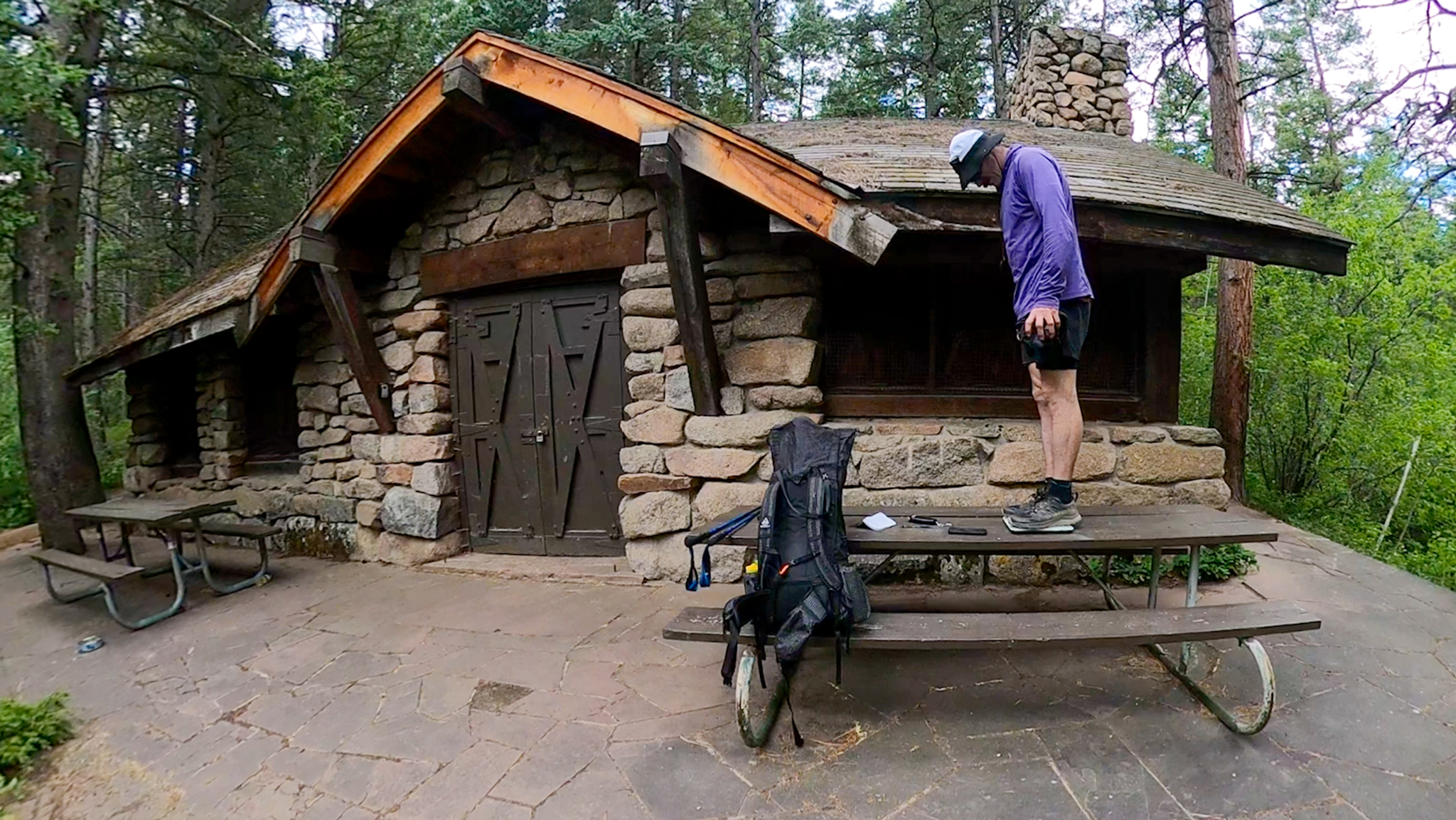
weight my pack,
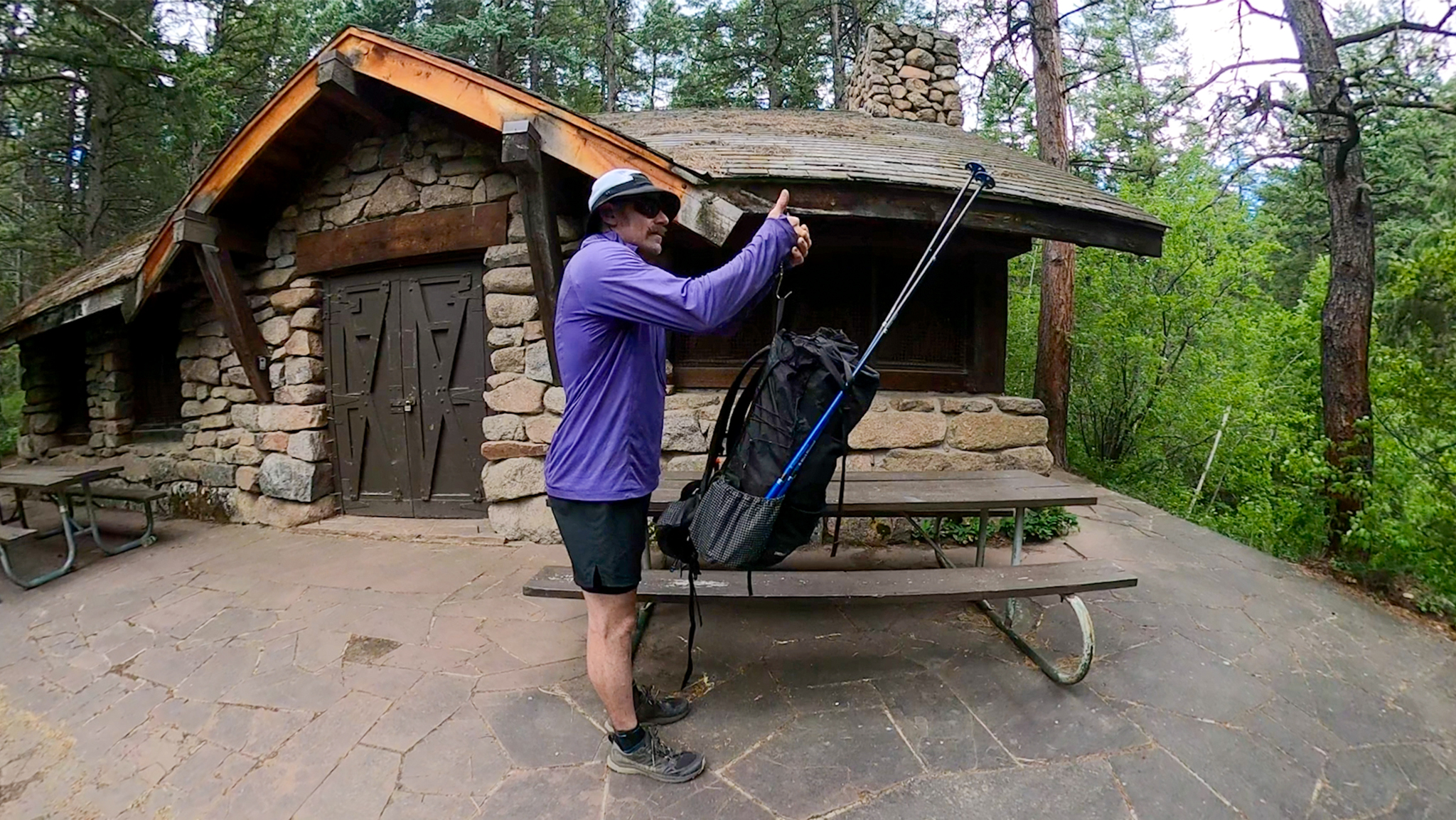
and weigh the water I brought — 7 Liters — which I hadn’t drank, then weigh the food I brought and hadn’t eaten.
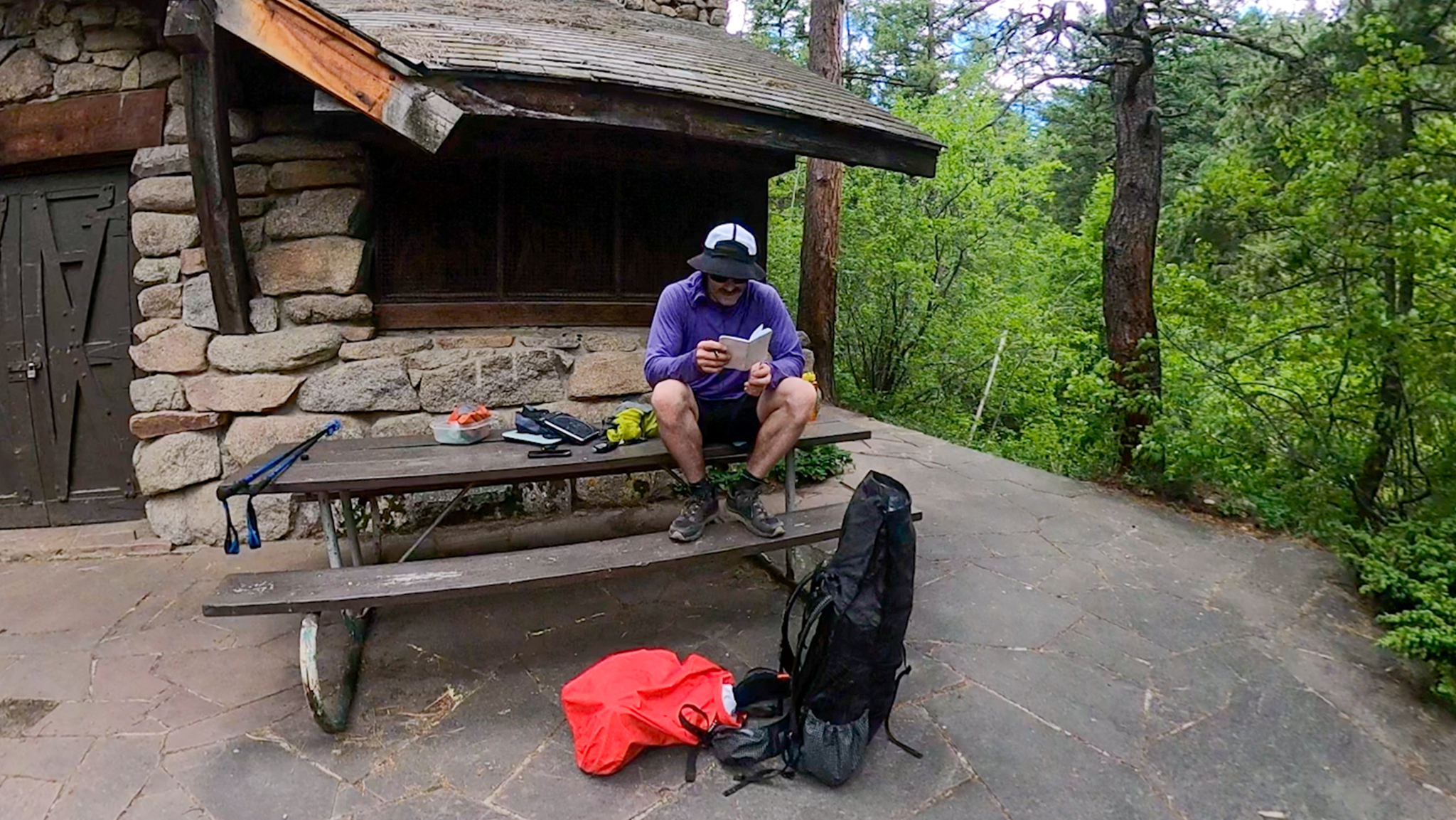
I’d also kept track of the amount of urine I peed out, and potentially how much I defecated. Finally, I recorded the temperature.
With that information, I could later figure out the weight and volume of my consumables (nutrition, water), as well as how much I was perspiring out compared to how much I was urinating/etc out.
There would be some weight loss due to glycogen use/fat use during my hike, but that would be something I would have to roughly calculate, as there is no way for me to figure out calorie expenditure directly via something like amount of CO2 being exhaled. My nutrition was mostly maltodextrin-based powder, so the amount of water from food was very minimal, and the calorie/gram was easy to calculate (about 4cals/gram, mostly carbs).
Speculation
I didn’t know what to expect, so I didn’t form a solid hypothesis, but I assumed I would lose a few pounds of bodyweight, and go through a few liters of water. I assumed I’d piss out a good margin of the water. It really all depends on how hot things got.
And at 6:30am, I started up my first lap of Green Mountain from the bus station with a ~35lb pack, consisting of food, water, various scales (including stealing the bathroom’s), sunscreen — the usual hiking accoutrements. I’ve done Green Mountain almost 700 times now, I knew it well.
Here’s the activity on Strava if you would like that information:
Note: this route goes through terrain that’s usually in a seasonal wildlife closure, but that closure was lifted early this year.
I hadn’t had any breakfast, except for a coffee drink I drank on the bus ride to the start that touted 150 calories and 300mg of caffeine – yum! And at 6:20pm, I reached the bus station once again, feeling very tired, very depleted. I had gone through all my water and a good portion of my food. I completed the three laps I had planned of Green Mountain, totaling ~27 miles of trail, ~7800′ of elevation gain/loss. “Strenuous” as they say. Highs were in the 90s, and I felt cooked.
What were the results?
Water Consumption
I drank all 7 Liters of water. If I had more, I’d have drank it too, as I felt like I was rationing my water the last few hours. 7 liters is 7kg of course, or 15.4 pounds of water. That seems like an astounding amount of water to drink in 12 hours! Averaged 0.54 Liters/18.26 ounces/hour.
Nutrition
In 12 hours, I ate approximately 2500 calories, made up of mostly powdered maltodextrin. The nutrition did also contain some sodium (and other trace minerals, vitamins), being formulating for endurance sports. Total sodium consumption came out to approx. 3 grams. Total weight of the nutrition consumed came to a total of 624g/1.37lbs.
Urination
With 7 Liters of water consumed, what did I pee out?
In total, I peed out 825ml — less than a Liter of the SEVEN I drank! By far my biggest relief came after consuming the morning coffee. 1.82lbs of pee.
Poo
No chart for this one, but in the 12 hours I was out, I need the call on the trail (which I packed out). Totaled 350 grams/.77lb. I only mention this as we’re calculated weight loss soon and this contributes a non-trivial amount. Moving on,
Calories Burned
I can only roughly guess how many calories were burned while hiking. The newly created hiking calculator that seems to have been made by Very Smart People comes out to approx. 5,210 calories burned, with a weight loss of .68kg/1.49lbs. That seems fairly unrealistic, but I don’t have a better idea on how to calculate calories burned, so we’ll run with it on this little experiment. We’ll talk about problems with this whole experiment later — hold your horses, sports scientists!
Weight Loss/Gain from Everything Except Perspiration
Rounding everything up:
| Water | +7kg | +15lbs |
| Nutrition | +.624kg | +1.37lbs |
| Urination | -.825kg | -1.82lbs |
| Defecation | -.350kg | -.77lb |
| Calories Burned | -.68kg | -1.49lbs |
I net consumed more than I removed (sans perspiration) at the tune of 5.77kg/12.72lbs.
So did I lose or gain weight given that I took in over 5kg/12lbs?
Body Weight Changes
My starting weight was 86.9kg/191.58lbs (I am not a small man) and I ended the hike weighing 81.28kg/179.18lbs. I lost 5.62kg/12.39lbs in TWELVE HOURS while net consuming 5.77kg/12.72lbs of food and fluids!
I was floored when I calculated all this out. If I’m interpreting this data I collected correctly, the only thing I hadn’t already contributed to my weight loss was perspiration, and if that’s right, it means that I perspired north of 20lbs of sweat in 12 hours.
There is also loss of water from exhalation. I don’t know what the % is compared to perspiration, but I would guess that it is a smaller %.
Takeaways
“Bodyweight” is a funny thing, as we’re weighing food that hasn’t yet been consumed, food that’s awaiting disposal down the line, and this very malleable item: water your body is retaining. The whole idea of weighing yourself at a single point of time to determine bodyweight is fairly flawed, and “bodyweight” done by a scale alone can only really be interpreted over a range of time to see an upwards or downwards trend, or by using a far more sophisticated methods (DEXA Scan, etc) to gain body composition.
Future Water Intake
Being chronically dehydrated seems like a really bad thing — I’m not a sports scientist, so if you are: please chime in. It would seem to be beneficial to weigh oneself before and after a hard workout to roughly estimate how much water to drink to bring you back to the morning’s baseline, then check if the water was taken up the next morning. After a while, you may get a sense of how much water to consume without needing to do the weigh-ins/weigh-outs. I may be of the opinion that I am at least: very bad at instinctively sensing this.
On my long distance adventures and FKTs I’m planning now to drink more water in general and drink more often than I have, as I feel I chronically under-hydrate over many days which could lead to real problems with dehydration. Knowing that I need approx. 1 Liter of water/hour as a rough estimate in hot weather is extremely useful information for me to know — and kinda worth all the trouble it was to perform this silly experiment.
Weakness in the “Study”
I feel the data I collected was relatively accurate using the tools I brought: a bathroom scale, a fishing scale, and a kitchen scale. My only wish was that I could have weighed myself more often, but finding a level, flat hard surface to weigh myself on proved difficult on the trail. The first and last weight measurements were done on perfectly level, hard concrete and on the exact same location, so I’m confident of both their relative accuracy. In the future, I could use a more robust hanging scale like the kind used for shipping and tie that to a tree branch, then grab ahold to lift myself up and take the measurement that way.
Veracity
This was hardly a scientific study — more of a casual survey. I don’t claim to be a biologist, a sport scientist, a health, fitness, or performance coach — a nutritionist or dietitian. The sample size was one, repeated one time in an incredibly varied, non-controlled environment. My pack weight fluctuated mostly downward as my water and food were consumed. The temperature changed throughout the day. My route was sometimes steep, sometimes not so steep. I was also the subject of the experiment, as well as the data collector, and number cruncher — there could be bias built in somewhere.
I could go on.
This is only to highlight the weaknesses in my assessment, but doesn’t discount how much utility I find in my day’s walk. Just understanding just how much weight fluctuates in the body over a short amount of time from water gaining/lossing is just… I’m aghast.
Electrolyte Loss
I am interested in how taking in more/less salt would contribute to the amount of water perspired or held on. I do find the amount I urinated quite low, and how that may suggest my starting… saltiness. The large amount of caffeine — 300mg — seems like it also contributed to the highest amount I peed out at the beginning of the experiment. No other caffeine or other drugs were consumed the rest of the day.
I don’t think my little study could help with coming to a suggested salt consumption number — a more controlled salt study would be beneficial. Considering salt lost per Liter can vary wildly across different individuals from roughly 200mg — 2000mg, it’s hard to say if additional salt supplementation would be appropriate. As I lost ~9kg of weight, that would also mean I lost anywhere between 1.8g and 18g of salt — a range that’s not terribly useful for making recommendations on supplementation.
Bodyweight and Water Loss
As I’ve noted, I am not a small man, even though I partake in many different endurance outings, from Everesting the same hill I did this experiment on, to summiting the highest peaks in the State self-powered in a summer. How I can hold onto so much lean mass as well as fat % — I’m probably 15%-20% body fat without actually getting a DEXA — is probably down to my diet and to a small degree my cold weather, woolly mammoth subsistence hunter farmer genetics. My guess though is that an individual who has a lower BMI than me would have an easier time thermoregulating and thus would need to consume less water.
Data Access
I’ve put a copy of the data I collected in a Google Sheet that you can find here:
https://docs.google.com/spreadsheets/d/1LEkfkoGuecJYWmNnU93_pnrTlN687o6yPiTBb8cUlIM/edit?usp=sharing
I’d be interested in any interpretations you may have, or any glaring errors I have made.
Thanks for reading.

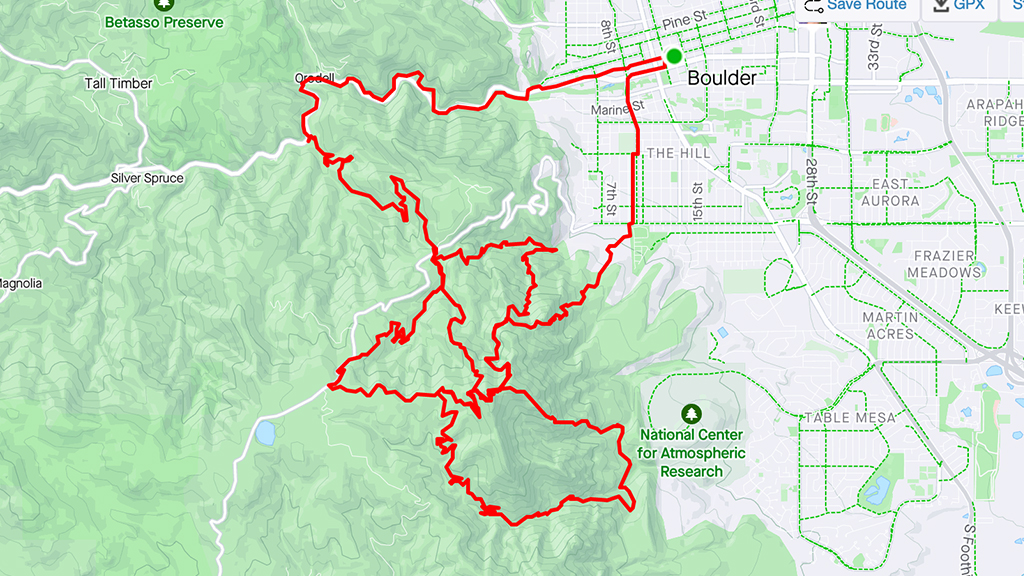
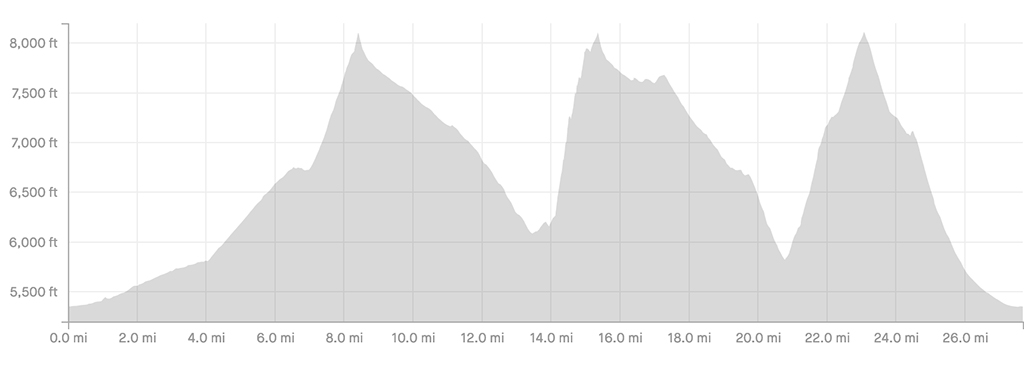
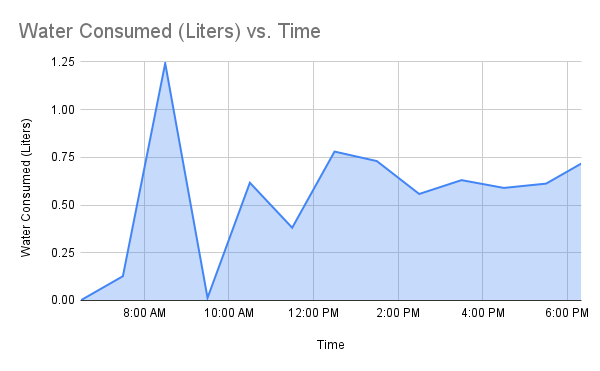
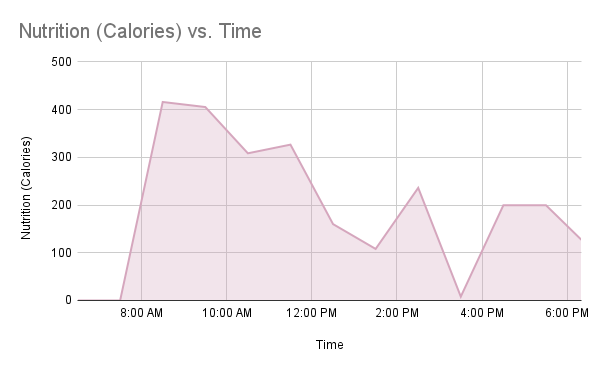
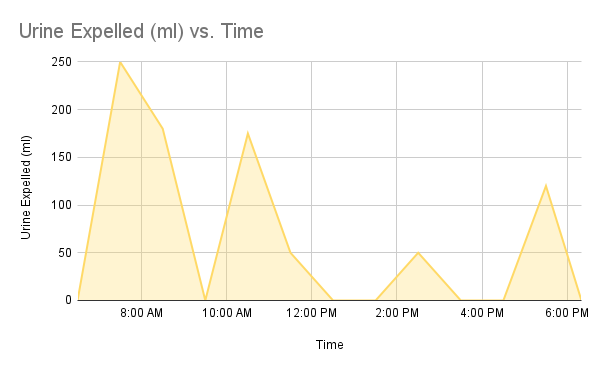
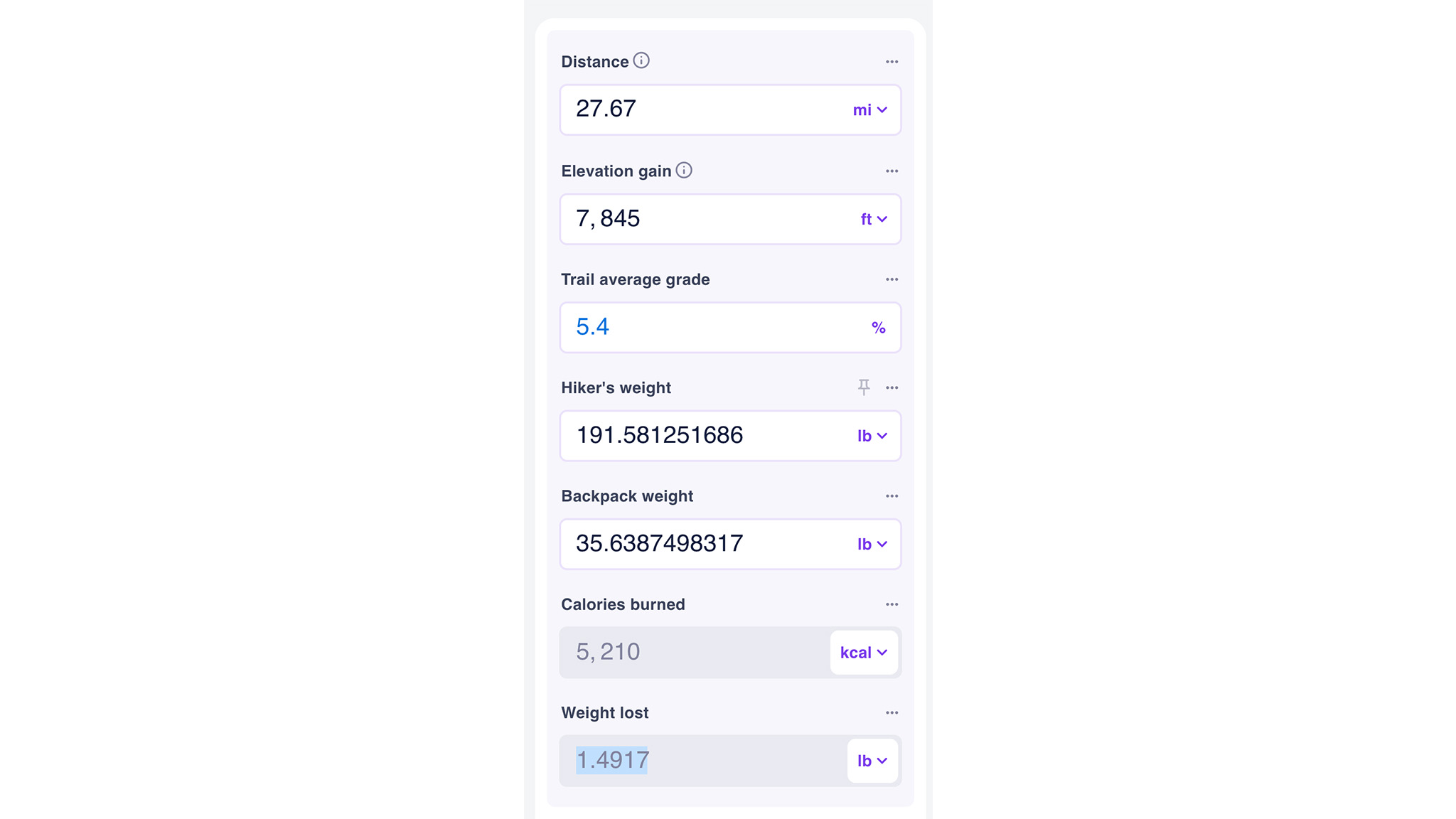
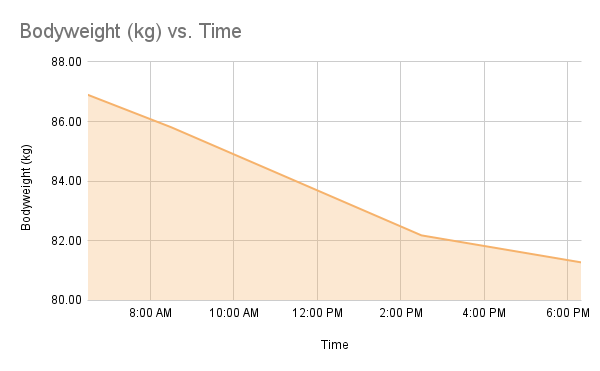

Interesting experiment! I’m no expert but I believe at least some of that weight loss would be due to burning fuel stores in the body, which also contain water molecules.
https://www.runnersworld.com/training/a20859056/just-because-you-sweat-doesnt-mean-youre-dehydrated/
Hoffman’s hydration guidelines PDF linked at the end of that article is fascinating. Counterintuitive but well reasoned.
“if you want to avoid muscle cramping, then be appropriately trained and compete within your level of training.”
Lol is that all I need to do? 😂 A bit naive to tell people not to push too hard during a race.
Hey Justin, nice experiment! I did a smaller scale test this week: weighed myself holding a bottle of Gatorade before my ~140 minute easy flat run in the heat and holding the empty bottle after it. The difference was over 7lbs! So I figured I was sweating around 1.4L/hr (ignoring glycogen/fat burn). That sounded crazy to me but per links below, I guess it’s not unreasonable.
These articles suggest the goal shouldn’t be to replace all water loss and made me realize I should probably be taking in more salt than the measly amount in the Gatorade on hot days.
https://www.trainingpeaks.com/blog/how-to-calculate-your-sweat-rate/
https://www.precisionhydration.com/performance-advice/hydration/how-much-dehydration-can-you-tolerate-before-your-performance-suffers/
The author has a product to sell but I still thought the info was useful. And thank you for your writeup! 20# is a lot, wow
Thanks Justin, really cool 🙂
This is fantastic and insightful. Keep it up Justin.